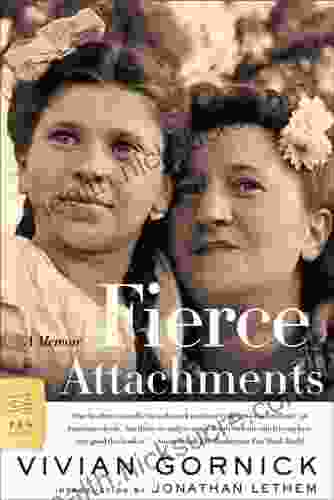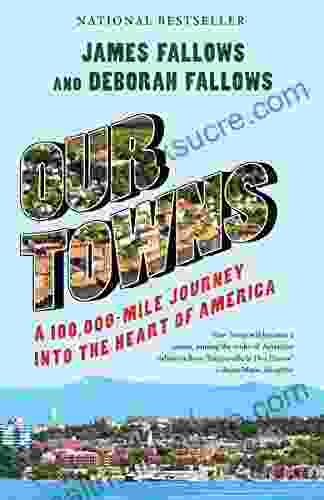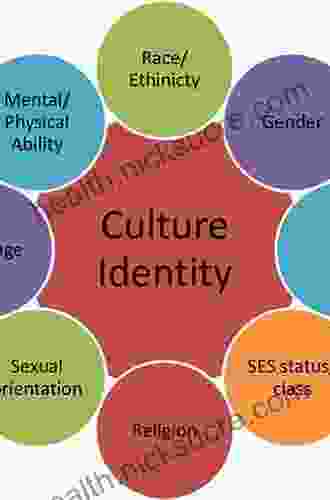Theory and Method of Cultural Consonance: Key Questions in Anthropology

Cultural consonance is a key concept in anthropology. It refers to the degree to which the values, beliefs, and practices of a culture are consistent with each other. Cultural consonance is often seen as a measure of the stability and resilience of a culture. Cultures that are high in cultural consonance are more likely to be able to withstand external pressures and maintain their identity.
5 out of 5
| Language | : | English |
| File size | : | 3507 KB |
| Text-to-Speech | : | Enabled |
| Screen Reader | : | Supported |
| Enhanced typesetting | : | Enabled |
| Word Wise | : | Enabled |
| Print length | : | 212 pages |
The theory of cultural consonance has been developed by a number of anthropologists, including Bronislaw Malinowski, A.R. Radcliffe-Brown, and Clyde Kluckhohn. Malinowski argued that cultural consonance is essential for the functioning of a society. He believed that the values, beliefs, and practices of a culture must be consistent with each other in order for people to be able to live together in harmony. Radcliffe-Brown agreed with Malinowski, but he also argued that cultural consonance is not always a good thing. He believed that too much cultural consonance can lead to stagnation and a lack of creativity. Kluckhohn took a more nuanced view of cultural consonance. He argued that cultural consonance is not always a good or bad thing. It is simply a fact of life. The important thing is to understand the degree to which a culture is consonant and the implications of this for the people who live in it.
The method of cultural consonance is a research method used to measure the degree of cultural consonance in a society. The method was developed by anthropologist John W. Berry. Berry's method involves asking people a series of questions about their values, beliefs, and practices. The responses to these questions are then used to calculate a score for cultural consonance.
The method of cultural consonance has been used in a number of studies to investigate the relationship between cultural consonance and a variety of outcomes, including social cohesion, economic development, and mental health. The results of these studies have shown that cultural consonance is positively associated with a number of positive outcomes. However, the relationship between cultural consonance and negative outcomes is less clear.
Key Questions in the Theory and Method of Cultural Consonance
There are a number of key questions that have been raised about the theory and method of cultural consonance. These questions include:
* How is cultural consonance defined and measured? * What are the implications of cultural consonance for human behavior and society? * What are the strengths and weaknesses of the method of cultural consonance?
These are just a few of the key questions that have been raised about the theory and method of cultural consonance. As research in this area continues, these questions will continue to be addressed.
Cultural consonance is a key concept in anthropology. It refers to the degree to which the values, beliefs, and practices of a culture are consistent with each other. The theory of cultural consonance has been developed by a number of anthropologists, and the method of cultural consonance is a research method used to measure the degree of cultural consonance in a society. The theory and method of cultural consonance have been used to investigate the relationship between cultural consonance and a variety of outcomes, including social cohesion, economic development, and mental health. The results of these studies have shown that cultural consonance is positively associated with a number of positive outcomes. However, the relationship between cultural consonance and negative outcomes is less clear. There are a number of key questions that have been raised about the theory and method of cultural consonance. These questions include:
* How is cultural consonance defined and measured? * What are the implications of cultural consonance for human behavior and society? * What are the strengths and weaknesses of the method of cultural consonance?
These are just a few of the key questions that have been raised about the theory and method of cultural consonance. As research in this area continues, these questions will continue to be addressed.
5 out of 5
| Language | : | English |
| File size | : | 3507 KB |
| Text-to-Speech | : | Enabled |
| Screen Reader | : | Supported |
| Enhanced typesetting | : | Enabled |
| Word Wise | : | Enabled |
| Print length | : | 212 pages |
Do you want to contribute by writing guest posts on this blog?
Please contact us and send us a resume of previous articles that you have written.
 Fiction
Fiction Non Fiction
Non Fiction Romance
Romance Mystery
Mystery Thriller
Thriller SciFi
SciFi Fantasy
Fantasy Horror
Horror Biography
Biography Selfhelp
Selfhelp Business
Business History
History Classics
Classics Poetry
Poetry Childrens
Childrens Young Adult
Young Adult Educational
Educational Cooking
Cooking Travel
Travel Lifestyle
Lifestyle Spirituality
Spirituality Health
Health Fitness
Fitness Technology
Technology Science
Science Arts
Arts Crafts
Crafts DIY
DIY Gardening
Gardening Petcare
Petcare Grace E Stewart
Grace E Stewart Jonathan St B T Evans
Jonathan St B T Evans Alicia Jasinska
Alicia Jasinska Joseph Fort Newton
Joseph Fort Newton Sarah P Morris
Sarah P Morris James Fallows
James Fallows Sean Patrick
Sean Patrick Philip Gosse
Philip Gosse Milton Gussow
Milton Gussow J R R Tolkien
J R R Tolkien Courtney Summers
Courtney Summers Helen Macdonald
Helen Macdonald Tom Babin
Tom Babin C S Wilde
C S Wilde John Hughes
John Hughes Fluent In Korean
Fluent In Korean William A Haviland
William A Haviland Frank Delaney
Frank Delaney Paul J Kosmin
Paul J Kosmin Joe Kenn
Joe Kenn Jennifer Waldburger
Jennifer Waldburger Kate Clifford Larson
Kate Clifford Larson Maria Hannay
Maria Hannay Roger Bannister
Roger Bannister Ryan Hall
Ryan Hall Toru Toba
Toru Toba Bogdan Ivanov
Bogdan Ivanov Mary Quinlan Mcgrath
Mary Quinlan Mcgrath Sylvia Larsen
Sylvia Larsen Chris Mulder
Chris Mulder Robert Penn Warren
Robert Penn Warren The Editors Of Outside Magazine
The Editors Of Outside Magazine N B Hankes
N B Hankes Annabeth Headrick
Annabeth Headrick Pasco Valana
Pasco Valana Raymond Turner
Raymond Turner Catherine Gildiner
Catherine Gildiner Jeff Burlingame
Jeff Burlingame Apryl Baker
Apryl Baker Raychelle Cassada Lohmann
Raychelle Cassada Lohmann Andrew Benfield
Andrew Benfield Erica Abbett
Erica Abbett Jon S Bailey
Jon S Bailey Sharon Weinberger
Sharon Weinberger Simone Milasas
Simone Milasas Allan Phillips
Allan Phillips Alistair Cooke
Alistair Cooke Matt Hart
Matt Hart Gerd Gigerenzer
Gerd Gigerenzer Phil Hornshaw
Phil Hornshaw Rick Johnson
Rick Johnson Robert M Sapolsky
Robert M Sapolsky Geoff Salmon
Geoff Salmon Matthew Syed
Matthew Syed Rene Almeling
Rene Almeling Carlo Ancelotti
Carlo Ancelotti Mark F Sohn
Mark F Sohn Emily Parke Chase
Emily Parke Chase Kwame Onwuachi
Kwame Onwuachi Bobby Clampett
Bobby Clampett Michelle Nijhuis
Michelle Nijhuis Alison Pearlman
Alison Pearlman Alistair Brownlee
Alistair Brownlee P J Richards
P J Richards Bill Varney Jr
Bill Varney Jr Lexie Scott
Lexie Scott Tress Bowen
Tress Bowen Lisa M Rose
Lisa M Rose Susan Ware
Susan Ware Kim Liggett
Kim Liggett Alison Gervais
Alison Gervais Jonathan Moeller
Jonathan Moeller Valerie Gilpeer
Valerie Gilpeer Alison Aulakh
Alison Aulakh Walter Isaacson
Walter Isaacson Kara Lawrence
Kara Lawrence Stephen R Covey
Stephen R Covey Josephine Perry
Josephine Perry Alister E Mcgrath
Alister E Mcgrath Daniel Stewart
Daniel Stewart Felix Marks
Felix Marks Lennard Bickel
Lennard Bickel Marc Bubbs
Marc Bubbs Dan Abrahams
Dan Abrahams Rachel Caine
Rachel Caine Richard Kaczynski
Richard Kaczynski Allen Morris Jones
Allen Morris Jones Elliot Aronson
Elliot Aronson Cy Tymony
Cy Tymony Muthukumaran Mani
Muthukumaran Mani Liz Clark
Liz Clark Kate Mcmahon
Kate Mcmahon Robin Riley
Robin Riley Mark Kistler
Mark Kistler Linda Martella Whitsett
Linda Martella Whitsett Patrick Stewart
Patrick Stewart Alicia Thomas Woolf
Alicia Thomas Woolf Daniel J Levitin
Daniel J Levitin Carolyn Shearlock
Carolyn Shearlock Chip Coffey
Chip Coffey George Buehler
George Buehler Joosr
Joosr Bret Hart
Bret Hart Kate Wood
Kate Wood Godfrey Higgins
Godfrey Higgins Bill Horn
Bill Horn Kristine Hudson
Kristine Hudson Peter Hollins
Peter Hollins Janet E Wall
Janet E Wall Jim Cheney
Jim Cheney Robin Stevenson
Robin Stevenson Michael Reist
Michael Reist Edmund Richardson
Edmund Richardson Jenara Nerenberg
Jenara Nerenberg Signe Pike
Signe Pike S Allen Counter
S Allen Counter Rob Shelsky
Rob Shelsky Carl Paoli
Carl Paoli Aubrey Gordon
Aubrey Gordon J Richard Gott
J Richard Gott Dr Nadine Sinclair
Dr Nadine Sinclair Suzanne O Sullivan
Suzanne O Sullivan Lionel Cruzille
Lionel Cruzille 10th Edition Kindle Edition
10th Edition Kindle Edition Alina A Von Davier
Alina A Von Davier Tom Daley
Tom Daley Rhonda Huettenmueller
Rhonda Huettenmueller Olajumoke Adenowo
Olajumoke Adenowo Joe Sparrow
Joe Sparrow Scott Smith
Scott Smith Richard M Van Gaasbeek
Richard M Van Gaasbeek Charlotte Runcie
Charlotte Runcie Suzanne Nottingham
Suzanne Nottingham Tim Baker
Tim Baker Mark Beauregard
Mark Beauregard Ashley D Kendall
Ashley D Kendall Allan G Bluman
Allan G Bluman Douglas Whynott
Douglas Whynott Jim C Hines
Jim C Hines Matthieu Auzanneau
Matthieu Auzanneau Eddie Guerrero
Eddie Guerrero Glenn Tinnin
Glenn Tinnin Rex Allen Jones Ii
Rex Allen Jones Ii Shobi Nolan
Shobi Nolan Bright Summaries
Bright Summaries Cate Stillman
Cate Stillman C Calvin Jones
C Calvin Jones Tom Watson
Tom Watson Danica G Hays
Danica G Hays Dr Ron M Horner
Dr Ron M Horner Jeremy Evans
Jeremy Evans William B Helmreich
William B Helmreich Allen Stroud
Allen Stroud Peter Van Der Linden
Peter Van Der Linden Jay Blahnik
Jay Blahnik Andrew Kastor
Andrew Kastor Michael Shermer
Michael Shermer Charles J Robinson
Charles J Robinson Dan Millman
Dan Millman Allan House
Allan House Allison Norfolk
Allison Norfolk Alison Scott Wright
Alison Scott Wright Allen N Mendler
Allen N Mendler Tim Roughgarden
Tim Roughgarden Kelsey Banfield
Kelsey Banfield Lewis Carroll
Lewis Carroll Deborah Ann Davis
Deborah Ann Davis Clive Cussler
Clive Cussler John C Lennox
John C Lennox Arthur Aughey
Arthur Aughey Dr Danielle Ward
Dr Danielle Ward Alicia F Lieberman
Alicia F Lieberman Beth Cavenaugh
Beth Cavenaugh Todd Wilbur
Todd Wilbur Jeff Hawkins
Jeff Hawkins Joel S Owen
Joel S Owen Laerke Recht
Laerke Recht Myrna Blyth
Myrna Blyth Mark Dice
Mark Dice Vincent Schilling
Vincent Schilling Joanna Foley Rd
Joanna Foley Rd Mian Majid Ali Afzal
Mian Majid Ali Afzal Tiger Woods
Tiger Woods Deborah Macnamara Phd
Deborah Macnamara Phd Judith Mckay
Judith Mckay Somaiya Daud
Somaiya Daud Julie Schwietert
Julie Schwietert Aly Raisman
Aly Raisman Allen Everett
Allen Everett Jen Torborg
Jen Torborg Ryan Spaeder
Ryan Spaeder Amy Wenzel
Amy Wenzel Jimena Canales
Jimena Canales Nick Karas
Nick Karas Carlos Castaneda
Carlos Castaneda Katy Milkman
Katy Milkman Jared Cohen
Jared Cohen Daniel J Siegel
Daniel J Siegel Meredith Russo
Meredith Russo John Michael Kelly
John Michael Kelly Alexander Clarke
Alexander Clarke Frederick Courteney Selous
Frederick Courteney Selous Sheena Byrom
Sheena Byrom Rebecca St James
Rebecca St James Cinda Williams Chima
Cinda Williams Chima Ann C Logue
Ann C Logue Roy Clark
Roy Clark Allison Alexy
Allison Alexy Joe Vasicek
Joe Vasicek Arianna Brooks
Arianna Brooks Hilda Jarman Muir
Hilda Jarman Muir Christina Hoff Sommers
Christina Hoff Sommers Sarah Grison
Sarah Grison Don Miguel Ruiz
Don Miguel Ruiz Amy Saltzman
Amy Saltzman Allison Dolan
Allison Dolan Karen Murphy
Karen Murphy Novak Djokovic
Novak Djokovic Victor Canning
Victor Canning Chris Fox
Chris Fox Sportsman S Connection
Sportsman S Connection Segun Adebajo
Segun Adebajo Claude Levi Strauss
Claude Levi Strauss Grant Petersen
Grant Petersen Alivia Stephens
Alivia Stephens Robert S Witte
Robert S Witte James Ferguson
James Ferguson Sabatino Moscati
Sabatino Moscati Robert Kiltz
Robert Kiltz Mike Zimmerman
Mike Zimmerman Sid Roth
Sid Roth Ronald Hutton
Ronald Hutton Kaitlyn Hill
Kaitlyn Hill Edwin Amenta
Edwin Amenta Lisa Marshall
Lisa Marshall Barbara De Angelis
Barbara De Angelis Jeffrey E Young
Jeffrey E Young Dave Pelz
Dave Pelz Brian Lopes
Brian Lopes Vitalis I Valentine
Vitalis I Valentine Kaylee Cole
Kaylee Cole D C Fergerson
D C Fergerson Eli Saslow
Eli Saslow Joseph Harkreader
Joseph Harkreader Jennifer E Smith
Jennifer E Smith Chris Lundgren
Chris Lundgren John Macinnes
John Macinnes Marc Vachon
Marc Vachon Roy Shepard
Roy Shepard Jim Rahtz
Jim Rahtz Scott Graham
Scott Graham Grace Lindsay
Grace Lindsay Marti Olsen Laney
Marti Olsen Laney Gregory Cochran
Gregory Cochran Shawn D Madden
Shawn D Madden Pass Your Class
Pass Your Class Elce Junior Lauriston
Elce Junior Lauriston Meredith L Jacobs
Meredith L Jacobs Jennifer Louden
Jennifer Louden Kevin West
Kevin West Allen G Taylor
Allen G Taylor Julie Currin
Julie Currin Robbin Gregory
Robbin Gregory Ron Merly
Ron Merly Marie Osmond
Marie Osmond Frank Christianson
Frank Christianson Norrinda Brown Hayat
Norrinda Brown Hayat Judy Converse
Judy Converse Stuart A Kauffman
Stuart A Kauffman Greg Henry
Greg Henry Neely Spence Gracey
Neely Spence Gracey Kenji Tokitsu
Kenji Tokitsu Dr Fiona Mcpherson
Dr Fiona Mcpherson Dan Miller
Dan Miller Edmund G R Kraal
Edmund G R Kraal Saint Teresa Of Avila
Saint Teresa Of Avila Bryan Goodwin
Bryan Goodwin Mike Wallace
Mike Wallace Ben Greenfield
Ben Greenfield Ian Westermann
Ian Westermann John Novosel Jr
John Novosel Jr Randy Olson
Randy Olson Linda Barrett Osborne
Linda Barrett Osborne Konnie Wong
Konnie Wong Justin J Exner
Justin J Exner Andrie De Vries
Andrie De Vries Mary Elizabeth O Brien
Mary Elizabeth O Brien Meritxell Castells
Meritxell Castells Jack Smith
Jack Smith Allen M Hornblum
Allen M Hornblum Kimberly Brown
Kimberly Brown Allen R Angel
Allen R Angel Carla Simpson
Carla Simpson Alisha J Brown
Alisha J Brown Harald B Teicher
Harald B Teicher Charles Conn
Charles Conn Chris Lear
Chris Lear Anil Seth
Anil Seth Allan Hall
Allan Hall John Lloyd
John Lloyd David Eagleman
David Eagleman David M Killoran
David M Killoran Allison Tyson
Allison Tyson Michele Stanten
Michele Stanten Lynn Stafford Yilmaz
Lynn Stafford Yilmaz Roy Macskimming
Roy Macskimming Lynn Rush
Lynn Rush Jim Downs
Jim Downs Y R Davis
Y R Davis Robert Taylor
Robert Taylor Teri Moser Woo
Teri Moser Woo Greg Moran
Greg Moran Alison Palmer
Alison Palmer Laura Randall
Laura Randall Jim Bell
Jim Bell Allan Kardec
Allan Kardec Eric Lemarque
Eric Lemarque Douglas Nicholas
Douglas Nicholas Allen Carr
Allen Carr Itzik Ben Gan
Itzik Ben Gan Susan Kuklin
Susan Kuklin Selene Yeager
Selene Yeager Peggy L Chinn
Peggy L Chinn Pure Calisthenics
Pure Calisthenics Emily Thiede
Emily Thiede Christian Asonye
Christian Asonye Amby Burfoot
Amby Burfoot Daniel Mendelsohn
Daniel Mendelsohn Henry Cloud
Henry Cloud Greg Strandberg
Greg Strandberg Bill Hendricks
Bill Hendricks Lydia Sherrer
Lydia Sherrer John Kavanagh
John Kavanagh Eric Newby
Eric Newby Noor Ain
Noor Ain Linda Greenlaw
Linda Greenlaw Aliza Kelly
Aliza Kelly Brenda Gable
Brenda Gable Brett Lee Scott
Brett Lee Scott Allison Arevalo
Allison Arevalo Rodney Ford
Rodney Ford The School Of Life
The School Of Life James F Mckenzie
James F Mckenzie Jacqueline H Wolf
Jacqueline H Wolf Christopher Bruhn
Christopher Bruhn Tim Rappleye
Tim Rappleye Carla Mooney
Carla Mooney Paul Green
Paul Green Joe Kelly
Joe Kelly Kathleen Bachynski
Kathleen Bachynski Steven J Burton
Steven J Burton Linda S Jones
Linda S Jones Ken Cohen
Ken Cohen Jorge Muniz
Jorge Muniz David Hancock
David Hancock Karen Blumenthal
Karen Blumenthal Gary Leland
Gary Leland Michael Fullan
Michael Fullan Suzanne Alderson
Suzanne Alderson Carrot Quinn
Carrot Quinn Monique Joiner Siedlak
Monique Joiner Siedlak John Shewey
John Shewey Allen J Christenson
Allen J Christenson Joshua Elliot James
Joshua Elliot James Kota Nozomi
Kota Nozomi Eugen Herrigel
Eugen Herrigel Despina Meris
Despina Meris Milt Rosko
Milt Rosko Judith Rich Harris
Judith Rich Harris Eric Naguski
Eric Naguski Susan Neiman
Susan Neiman David F Anderson
David F Anderson W E Fairbairn
W E Fairbairn Eickhel Mendoza
Eickhel Mendoza Marianne Williamson
Marianne Williamson Frederick Mosteller
Frederick Mosteller Giancarlo Lemmi
Giancarlo Lemmi Ronald E Mickens
Ronald E Mickens Brian Treanor
Brian Treanor Lynn Acton
Lynn Acton Anna Leinberger
Anna Leinberger Mourad Boufadene
Mourad Boufadene Paul D Brinkman
Paul D Brinkman Ed Robinson
Ed Robinson Chris Cannon
Chris Cannon Neil Hayes
Neil Hayes Maria Rickert Hong
Maria Rickert Hong Maurice Isserman
Maurice Isserman Don Harris
Don Harris Gail Steketee
Gail Steketee Rex L Forehand
Rex L Forehand L H Nicole
L H Nicole Kenneth Igiri
Kenneth Igiri Kim Heacox
Kim Heacox Pottermore Publishing
Pottermore Publishing Jeff Gordon
Jeff Gordon Allison Schrager
Allison Schrager Alexandra Amor
Alexandra Amor Tom Kelly
Tom Kelly Diana Korte
Diana Korte P Schreiber
P Schreiber Stuart Holmes Coleman
Stuart Holmes Coleman Brenda Boyd
Brenda Boyd Gavin Fairbairn
Gavin Fairbairn Thomas R Verny
Thomas R Verny Anna Costaras
Anna Costaras Jason Padgett
Jason Padgett James Patterson
James Patterson David Hurst Thomas
David Hurst Thomas Wendelin Van Draanen
Wendelin Van Draanen Allen Dulles
Allen Dulles Michaelbrent Collings
Michaelbrent Collings Alison Lighthall Miller
Alison Lighthall Miller Marlin M Mackenzie
Marlin M Mackenzie Liz Evers
Liz Evers Julie Morgenstern
Julie Morgenstern James Sieckmann
James Sieckmann William W Dressler
William W Dressler Priya Ardis
Priya Ardis Randy Russell
Randy Russell Mary Bergin
Mary Bergin The Dark Lords
The Dark Lords Debra L Martin
Debra L Martin Naomi Kokoricha
Naomi Kokoricha William Stott
William Stott Allison Williams
Allison Williams Natasha Devon
Natasha Devon Brian Boone
Brian Boone Karen Wambach
Karen Wambach Robert Green
Robert Green Chris Chambers
Chris Chambers Jonathan E Steinhart
Jonathan E Steinhart Tami Asars
Tami Asars Iain Gately
Iain Gately W Edwards Deming
W Edwards Deming Rowena Murray
Rowena Murray Giuseppe Mascoli
Giuseppe Mascoli George M Johnson
George M Johnson Allan Trevor
Allan Trevor Paul S Auerbach
Paul S Auerbach Ethem Mining
Ethem Mining Casi Mclean
Casi Mclean Jim Mancuso
Jim Mancuso Stephen Haddelsey
Stephen Haddelsey Gary Sizer
Gary Sizer John Bul Dau
John Bul Dau Bruce Tremper
Bruce Tremper Pamela Douglas
Pamela Douglas Leah Vanderveldt
Leah Vanderveldt Mandi Hickman
Mandi Hickman Emma Shelford
Emma Shelford Jean Jacques Chevron
Jean Jacques Chevron Nikki Solano
Nikki Solano Linda A Curtis
Linda A Curtis Paul Schullery
Paul Schullery Kevin Leman
Kevin Leman Jim Cobb
Jim Cobb Winston Churchill
Winston Churchill Annie F Downs
Annie F Downs Allistair Mccaw
Allistair Mccaw Tim Hodkinson
Tim Hodkinson Nevin Martell
Nevin Martell Stephen E Flowers
Stephen E Flowers Jeff Brent
Jeff Brent Holly Homer
Holly Homer Trae Dorn
Trae Dorn Jdmission Senior Consultants
Jdmission Senior Consultants Travis Jeffery
Travis Jeffery John Bargh Ph D
John Bargh Ph D Maria Thompson Daviess
Maria Thompson Daviess Dennis Jarecke
Dennis Jarecke Dennis Overbye
Dennis Overbye Peter Mark Adams
Peter Mark Adams Lsatmax Lsat Prep
Lsatmax Lsat Prep Richard H Thaler
Richard H Thaler James Kipling
James Kipling Alan Watts
Alan Watts Joel Thomas Chopp
Joel Thomas Chopp Allison Mcdonald Ace
Allison Mcdonald Ace Leonard Shlain
Leonard Shlain Nick Riley
Nick Riley Steve J Martin
Steve J Martin Vivian Gornick
Vivian Gornick Tami Overhauser
Tami Overhauser Karen Bonnell
Karen Bonnell Theodore B Sauselein
Theodore B Sauselein Molly Forbes
Molly Forbes Mara Krechevsky
Mara Krechevsky Alistair Higham
Alistair Higham Matthew Mccoy
Matthew Mccoy Sam Jefferson
Sam Jefferson Debi Pearl
Debi Pearl Grant S Lipman
Grant S Lipman Allen O Bannon
Allen O Bannon Jason Durham
Jason Durham Dennis Georgatos
Dennis Georgatos Perry Lefko
Perry Lefko Petr Zima
Petr Zima Franz Kellermann
Franz Kellermann Etienne Noumen
Etienne Noumen
Light bulbAdvertise smarter! Our strategic ad space ensures maximum exposure. Reserve your spot today!
 Fernando BellFollow ·8.2k
Fernando BellFollow ·8.2k Brody PowellFollow ·2k
Brody PowellFollow ·2k Hugh ReedFollow ·12.6k
Hugh ReedFollow ·12.6k Edmund HayesFollow ·2.3k
Edmund HayesFollow ·2.3k Dwayne MitchellFollow ·11.5k
Dwayne MitchellFollow ·11.5k George OrwellFollow ·11k
George OrwellFollow ·11k Cole PowellFollow ·19.4k
Cole PowellFollow ·19.4k Manuel ButlerFollow ·12.9k
Manuel ButlerFollow ·12.9k

 Dominic Simmons
Dominic SimmonsFierce Attachments: A Memoir by Vivian Gornick - A...
Vivian Gornick's Fierce Attachments is a...

 Edison Mitchell
Edison MitchellPrimer for America's Favorite Wilderness: A Comprehensive...
In the vast...

 Jan Mitchell
Jan MitchellIntroduction to Probability: A Comprehensive Guide for...
Probability is a crucial branch of...

 Chuck Mitchell
Chuck Mitchell100,000 Mile Journey Into the Heart of America
In 2016, I embarked on a...

 Eddie Bell
Eddie BellHow Schools Around the World Are Inspiring Greatness One...
Education is the key...

 Quentin Powell
Quentin PowellJourney into the Heart of Alaska: Exploring the Majestic...
Alaska, the largest...
5 out of 5
| Language | : | English |
| File size | : | 3507 KB |
| Text-to-Speech | : | Enabled |
| Screen Reader | : | Supported |
| Enhanced typesetting | : | Enabled |
| Word Wise | : | Enabled |
| Print length | : | 212 pages |












